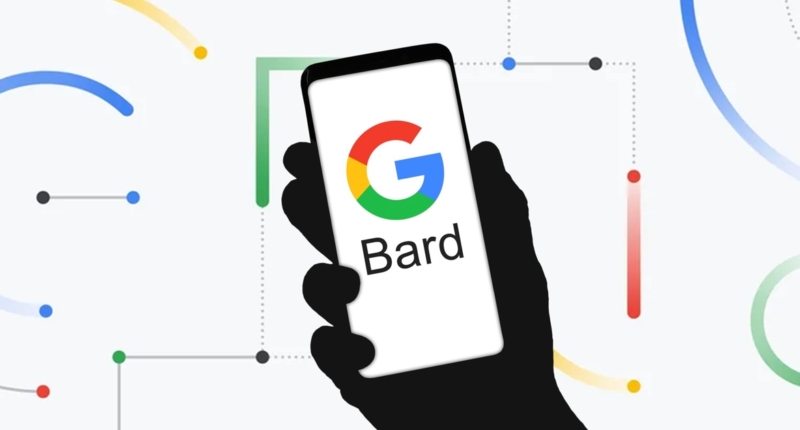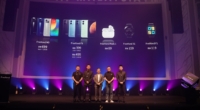Google has opened its AI platform, Bard, to a limited number of users in the US and UK. The generative AI product is powered by a large language model (LLM) that predicts responses based on prompts. However, there are caveats, with Google warning that Bard may spout misinformation. The company is inviting feedback from more people to improve the product and underlying technology. Users can conduct back-and-forth conversations with the platform, with conversation length initially limited for safety reasons. But Google plans to increase these limits over time. User feedback is seen as crucial to improving the product. The company plans to showcase its progress in AI with Bard at its annual developer conference in May.
Google Bard: AI Chatbot with Disclaimers
Google has recently launched its AI chatbot called Bard, granting exclusive access to selected users in the US and UK. After years of cautious development, the company has finally decided to release the technology, although with several disclaimers.
One of the notable disclaimers is that Bard may present inaccurate or offensive information that does not represent the company’s views. This statement emphasizes that Google does not entirely vouch for the accuracy and appropriateness of the chatbot’s responses.
Bard’s launch was underwhelming due to an error in an ad that put the chatbot on the backfoot compared to Microsoft’s ChatGPT, its competitor. Some Google employees even criticized the launch as rushed and botched on the company’s internal message boards.
Google was once the leader in AI technology until it was overtaken by OpenAI. The technology at the heart of OpenAI’s chatbot, called LaMDA, was developed by researchers at Google. The company has been testing the technology since 2015 but was not released beyond a small group of testers until ChatGPT was introduced last year.
The competition with Microsoft and OpenAI prompted teams inside Google, including those who specialize in AI safety, to collaborate and speed up the approval of new products. Even Google’s LaMDA team was asked to prioritize working on a response to ChatGPT, according to an internal memo viewed by CNBC.
The pressure to release Bard was heightened by Microsoft’s investment in OpenAI, which pumped billions into the company in the past year. The breakneck pace of OpenAI and Microsoft in releasing their AI tools also cast doubts on Google’s ability to release its chatbot quickly.
For now, Google Bard is limited to users in the US and UK. However, the company’s focus on AI technology suggests that it is only a matter of time before the chatbot is available to a wider audience.
Google Bard: AI Platform for Limited Users
Google recently announced that it is opening up its AI platform, Bard, to a limited number of users in selected countries. The company has officially allowed people in the US and UK to sign up for its generative AI product, with plans to expand availability to more countries and languages over time.
The blog post announcing the opening up of Bard was authored by Sissie Hsiao, product vice president, and Eli Collins, research vice president. The post notes that the company has learned a lot by testing Bard and that the next critical step in improving it is to get feedback from more people.
Google describes Bard as powered by a large language model (LLM), which can be considered a prediction engine. When given a prompt, it generates a response by selecting one word at a time from words that are likely to come next. The post notes that there is some flexibility factored in so that the responses are not predictable.
However, the blog post was filled with a handful of disclaimers, mainly highlighting that Bard may spout misinformation. The company noted that LLMs learn from a wide range of information that reflects real-world biases and stereotypes, which sometimes show up in their outputs. The post warns that Bard might provide inaccurate, misleading, or false information while presenting it confidently.
Google emphasized that Bard is guided by the company’s AI principles, continuously focusing on quality and safety. The company also plans to invite 10,000 trusted testers from a variety of backgrounds and perspectives to test the platform responsibly.
Google Bard: User Feedback Crucial for Improvements
In a memo to his employees, Google CEO Sundar Pichai emphasized the importance of user feedback in improving Bard, the company’s AI platform. He acknowledged that as more people use the product and test its capabilities, things will go wrong. But user feedback is crucial to improving the product and the underlying technology.
Currently, users with access to Bard can conduct back-and-forth conversations with the platform, similar to Microsoft’s new Bing service. Google will initially limit the length of conversations for safety reasons, but those limits will be increased over time. The company plans to showcase the progress it has made in AI with Bard at its annual developer conference in May.
Don’t miss interesting posts on Famousbio










